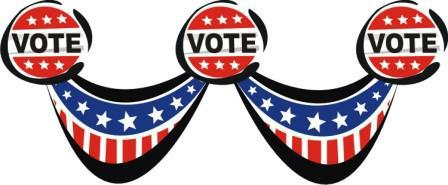Last Updated on February 7, 2020
In a previous blog post, we went over why drug prices can rise seemingly without explanation and how the cost of medications ranks as a top priority to a majority of Americans. We are now in the midst of primary elections in the United States, and candidates from both parties have addressed the issue and proposed different policies.
 In the same prior blog post, we mentioned a proposed bill for the Prescription Drug Affordability Act. Independent Senator from Vermont and Democratic Presidential Candidate Bernie Sanders proposed the bill aimed at assisting individuals with Medicare with the high costs of medications, allow government negotiations with pharmaceutical companies, and importing medications from nations that offer life-saving drugs at a lower price (particularly Canada where drug prices are 40% lower than in the US). His presidential campaign is running on a platform of transparency in drug pricing and to prohibit anti-competitive “pay-for-delay” deals that keep cheaper generic medications being made available.
In the same prior blog post, we mentioned a proposed bill for the Prescription Drug Affordability Act. Independent Senator from Vermont and Democratic Presidential Candidate Bernie Sanders proposed the bill aimed at assisting individuals with Medicare with the high costs of medications, allow government negotiations with pharmaceutical companies, and importing medications from nations that offer life-saving drugs at a lower price (particularly Canada where drug prices are 40% lower than in the US). His presidential campaign is running on a platform of transparency in drug pricing and to prohibit anti-competitive “pay-for-delay” deals that keep cheaper generic medications being made available.
Sanders has also taken symbolic steps in combatting high drug prices, such as rejecting a donation to his campaign from a high-profile pharmaceutical company CEO and directing the funds to a Washington health clinic instead. A Sanders spokesperson said: “We are not keeping the money from this poster boy for drug company greed.”
Democrat Candidate Hillary Clinton wants to cap the out-of-pocket costs for prescription medications and require drug companies to invest in research and development as opposed to marketing/direct-to-consumer advertising or profits. Several states have already implemented monthly or annual caps on out-of-pocket costs similar to Clinton’s proposals.
Republican presidential candidates have proposed different methods of reducing prescription costs, though they all generally support the repeal of the Affordable Care Act. Ted Cruz, senator and presidential candidate from Texas, proposes the reduction of federal regulations on pharmaceutical companies to decrease the cost of developing new drugs and bringing them to the marketplace. Florida Senator Marco Rubio and Ohio Governor John Kasich both want to promote competition by bringing generics to market quicker. Businessman-turned-presidential-candidate Donald Trump has recognized that the drug companies are the ones keeping prices inflated, despite Medicare’s position as one of the nation’s biggest buyers of prescription medications.
Experts are split on many of the proposals being put forth. The Congressional Budget Office has said that allowing Medicare to negotiate with pharmaceutical companies “would have a negligible effect” on cost. Some candidates’ proposed caps would shift costs to everyone in the insurance pool, thereby increasing insurance premiums. Other proposals of importing medications, limiting the amount spent on marketing/advertising, and prohibiting delays in generic development have all been through the congressional process before; none have ever been passed.
Here at NeedyMeds we prefer not to get political—we work in a diverse office with views across many spectrums—but it should be clear that we support improved access to care and lower costs for medications and health services for all. Our site has databases of Patient Assistance Programs (PAPs), Diagnosis-Based Assistance (DBAs), and Free/Low-cost/Sliding-scale Clinics to help those in need. The NeedyMeds Drug Discount Card can save between 0-80% off the cash price of prescription medications for those without insurance or choose to use the card instead of insurance, and is also available in a printable form or a smartphone app for Apple and Android devices. For more help finding information, call our toll-free helpline: 1-800-503-6897.





1 Comment